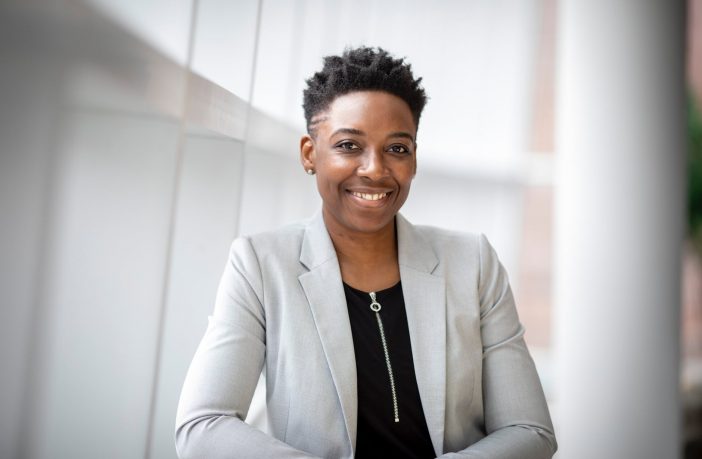‘The ‘BS’ that women deal with every day. A solar veteran and company founder shares some stories.
When I started in this industry, homeowners thought solar was a bit strange — something for crunchy people who wore Birkenstocks and lived off-grid.
It was even stranger to be a woman in solar.
I didn’t know of any other women in the industry, let alone on the installation side. I had no solar experience at the outset, so I got certified as an installer. It turned out the most useful aspect of that wasn’t the ability to design and install a PV system — it was to point out to others in the industry (usually men) that I knew an array from an inverter. Bringing that credential into any conversation changed the interaction dramatically.
I bought a PV system for my own home before launching my company. Salespeople were mystified that my husband wasn’t the one making the purchasing decision. “The wife just cares about how the panels will look on the house,” I was informed.
The company that I founded, Ready Solar, manufactured a fully pre-assembled, modular, AC-out array that made design and installation much less expensive. Nevertheless, getting venture funding was challenging to say the least. After one venture capitalist told me my business model was lousy and I stood up to leave, he commented, “Wow, if I’d seen those red shoes when you came in, I would’ve given you money!”
The initial version of Solar in a Box® was a proprietary racking system that I invented and patented. So of course, an industry associate told me that I had — wait for it — the best “rack” in the business.
Clearly, there was a whole other value proposition that I could’ve put in my marketing materials.
At an early board meeting, one director commented that my head of sales (a tall white man) was the one who “looked like a solar company CEO.” Later, it was the CEO mannequin who objected to hiring a talented candidate because “our customers wouldn’t relate” to a black woman. She became a highly valued teammate. I had indeed made a bad hire, but it wasn’t her.
Today solar is more diverse, although that’s a low bar. While it’s no longer a surprise to see women, it’s still a surprise to see women in leadership positions.
Solar is one of the best technologies we have to fight climate change, and it’s awesome to see how much traction it has gained. The increasing urgency of achieving global sustainability plus the industry’s rapid growth have attracted many more women and people of color. And I’m proud to be at Aurora Solar, a refreshingly diverse and mission-driven solar software company that’s willing to be introspective about how it can do better.
So yes, a lot has changed, but in some ways not all that much. As recently as three months ago, a potential industry partner mansplained the solar supply chain to me. Another informed me which states were on the east coast. I still have to insert that solar installer credential into conversations at times. At the most recent Solar Power International, a colleague of mine was providing a detailed explanation of Aurora’s technical underpinnings to an attendee when he remarked, “They taught you all of this this morning?” He assumed she was a “booth babe.” Really, dude?
Unfortunately, for a supposedly progressive, world-changing industry, solar has a lot of work to do. According to the Solar Foundation, women are significantly under-represented in solar compared to the U.S. workforce, and then under-represented again in management and in senior executive roles. The wage gap between women and men is larger in solar. Not surprisingly, job satisfaction is significantly lower for women.
This is all bad business. Study after study has documented that diversity is good for the bottom line. Companies with above-average diversity, especially in leadership, generate higher revenues and better profitability, innovate more, and attract and retain more top talent than below-average ones.
What to do? Hire and promote more women and people of color. Excusing your non-diverse hiring by saying “we couldn’t find any qualified candidates” simply highlights that diversity and equity aren’t important enough for you to look harder. And before you pass a woman and/or a person of color over for promotion, check your assumptions. Is s/he really less qualified, or is she just different from what you expect a more senior person to be like?
Guys, ask and then listen to the women you work with about some of the experiences they’ve had that are completely unrelated to their technical chops, sales skills, or industry knowledge. Just because they are women. I guarantee, you’ll hear some things.
The key to retaining talented employees of all types is letting them know that their contributions are recognized and will be rewarded with greater responsibility. And making sure that no one in the organization is treated with disrespect, even unknowingly. We can’t completely understand someone else’s experience, but we can learn, and we can start to appreciate our differences. These are just sound leadership principles.
Is all this touchy-feely stuff worth it? Yes. Solar is growing fast, and it’s on a far stronger footing than it was ten years ago. But there is still plenty of pushback, in politics, policy, regulation and competition with entrenched fossil fuels. We need to leverage everyone’s resources for solar to succeed, not just some of them.
Author: Meredith McClintock
Meredith is head of business development at Aurora Solar in the USA.
This article was originally published in pv magazine and is republished with permission.
Disclaimer: The articles expressed in this publication are those of the authors. They do not purport to reflect the opinions or views of Green Building Africa, our staff or our advertisers. The designations employed in this publication and the presentation of material therein do not imply the expression of any opinion whatsoever on the part Green Building Africa concerning the legal status of any country, area or territory or of its authorities.











